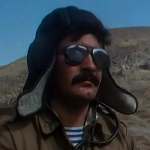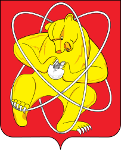|
Shimrra Jamaane posted:I have to give Truman credit for one thing though, he was absolutely right to can MacArthur as soon as the dumb gently caress wanted to use nukes against China. And it was more or less Dugout Doug's fault that the Chinese even entered the war in the first place correct? IMO MacArthur should have been fired/strung up after the Bonus Army/Loss of the Philippines/Retaking of the Philippines. But yes it was his fault Mao got involved at all. Mao and the communists had been issuing warnings through an Indian diplomat since MacArthur crossed the 38th to not come within 20 or 50 miles of the Yalu. He ignored the warnings and PLA entered the war when he got too close to the Yalu.
|
|
|
|

|
| # ? May 17, 2024 19:10 |
|
cheerfullydrab posted:Here's a fun question: are there any good memoirs written by people who were from non-French areas annexed by Napoleon who served in his armed forces? Such as a Croat from the "Illyrian Provinces". Including puppet states but not allies.
|
|
|
|
MassivelyBuckNegro posted:While they were responsible for a disproportionate number of kills, is that a good metric to use in a counter-insurgency? We killed a poo poo ton of Vietnamese in Vietnam, Arabs in Iraq and various ethnicities in Afghanistan and we didn't win any of those wars. Once the CAP platoons were gone, the villages reverted back to VC control quickly and not just because the Popular Force units weren't up to the task of fighting VC or NVA units. If they don't even do anything and just sit in their caves/tunnels/houses while the big evil government bombs villages then they're having the war won for them.
|
|
|
|
MassivelyBuckNegro posted:There's actually a pretty good book about this(http://www.amazon.com/Combined-Acti...action+platoons) which I don't have handy. The program ended after about 5 years of operation for a number of reasons: The US was beginning its drawdown from Vietnam, leaders became more risk averse, it didn't scale well(hard to find enough good NCOs/junior enlisted without gutting the infantry battalions; they eventually started taking NCOs from any MOS), the Army favored big unit sweeps. Arquinsiel posted:TBH it's the exact opposite of a good metric. The aim of an insurgency is to apply pressure via the population of the area on the controlling power, and this is done via fear of death, injury, loss of property etc. Specifically, the population begins to worry that if they don't get rid of the big evil then they are at personal risk of "bad stuff". Thus it is actually, in some ways, counter productive for the insurgency to actually hurt anyone. I suspect this is why the IRA used to call in carbombs ahead of time, and have roads closed off for ages while the bomb squad dealt with things. Interesting book recommendation. I've basing my thoughts on Bing West's The Village, which is about CAP at it's most effective. One of the things that West mentions is that the CAP Marines were far less likely to use indiscriminate fire, because if they burnt down a hut or killed a civilian they'd have to deal with the moral opprobrium of the village for the rest of their tour. Night ambushes with grenade launchers and machine guns at the edges of the hamlets were the most useful tactic, since it screwed up VC logistics, recruiting, and propaganda, and had a decent shot of hitting political cadres or tactical leaders. Not that there weren't flaws with CAP, as you pointed out. The whole thing required exceptionally motivated soldiers and leaders to work, and those types were rather thin on the ground after a few years of lies and insanity in Vietnam. It was unclear if village forces could stand up after the Marines left. And distributing your forces in penny-packets across the countryside looks like a great way to get defeated in detail. Whatever the merits of CAP, programs like it can't be worse than big sweeps and air strikes, which are doing the guerrillas work for them. Counter-Insurgency is difficult, time-consuming, and expensive. My own opinion is that it's really a euphemism term for colonization, especially when the local government that we're supposed to be supporting is weak or corrupt, and that to do it correctly requires deployments of decades, not years.
|
|
|
|
Biffmotron posted:And distributing your forces in penny-packets across the countryside looks like a great way to get defeated in detail. Whatever the merits of CAP, programs like it can't be worse than big sweeps and air strikes, which are doing the guerrillas work for them. The US had pretty great tactical mobility during the war thanks to helicopters (and to a certain extent from M113 ACAVs and the like), so inserting reinforcements or extracting troops in trouble. Plus, with all the firebases and air assets in-country, troops in contact were pretty much guaranteed to have artillery and/or CAS. Biffmotron posted:Counter-Insurgency is difficult, time-consuming, and expensive. My own opinion is that it's really a euphemism term for colonization, especially when the local government that we're supposed to be supporting is weak or corrupt, and that to do it correctly requires deployments of decades, not years. COIN certainly be used in a colonial context, since many insurgent groups have been anti-colonial (see Algeria, Angola, Malaya and maybe even Rhodesia). But it isn't inherently colonial, even if an outside power in involved in the fighting. The French aren't going to recolonize Mali, but they're still engaged in counter-insurgent operations in support of the Malian government. And there are cases where insurgencies and counter-insurgencies have been waged almost entirely by internal players (e.g. Cuba or the Peruvian government's fight with the Shining Path and MRTA)
|
|
|
Biffmotron posted:Interesting book recommendation. I've basing my thoughts on Bing West's The Village, which is about CAP at it's most effective. One of the things that West mentions is that the CAP Marines were far less likely to use indiscriminate fire, because if they burnt down a hut or killed a civilian they'd have to deal with the moral opprobrium of the village for the rest of their tour. Night ambushes with grenade launchers and machine guns at the edges of the hamlets were the most useful tactic, since it screwed up VC logistics, recruiting, and propaganda, and had a decent shot of hitting political cadres or tactical leaders. Not that there weren't flaws with CAP, as you pointed out. The whole thing required exceptionally motivated soldiers and leaders to work, and those types were rather thin on the ground after a few years of lies and insanity in Vietnam. It was unclear if village forces could stand up after the Marines left. And distributing your forces in penny-packets across the countryside looks like a great way to get defeated in detail. Whatever the merits of CAP, programs like it can't be worse than big sweeps and air strikes, which are doing the guerrillas work for them. Its a very readable, more thorough and academic examination of the CAP program written by a former CAP Marine. 'The Village' is more pop history. Certainly worth reading, but far from the end all-be all. I don't think that COIN is a thing that is practicable for liberal first world democracies unless the deck is stacked immensely in their favor(ex. Brits in Malaysia). The RAND institute has some good stuff on the topic(ex http://www.rand.org/pubs/monographs/MG964z1.html) but I think they have a broader idea of 'victory' than most people would agree on. A properly conducted COIN campaign would probably take more men(there is some ideal ratio in COIN FM 3-24 that will never be reached, 1 COIN:100 locals I think), more time(decades as you note), and more money than any country could be reasonably expected to spend. The problems faced aren't always going to be the kind of things that you can just throw money at. ex. When I was in Afghanistan we had some Civil Affairs Marines on my COP. They were tasked with, amongst other things, distributing money to rebuild the local infrastructure. The Helmand River Valley has no infrastructure beyond dirt tracks and a serious of irrigation canals built with American money in the 60s. There aren't any paved roads, modern bridges, clinics, readily identifiable schools, electric plants, water treatment plants, etc. They had an unbelievably hard time identifying legitimate projects to disburse funds to because there simply wasn't anything there to rebuild. They rebuilt a few wells, opened a school, and then spent the rest of their deployment trying to determine if a farmers request for a foot/tractor bridge would enhance local infrastructure or just his own. https://maps.google.com/maps?ll=30.548439,63.78881&spn=0.026204,0.052314&t=h&z=15&lci=com.panoramio.all Bacarruda posted:COIN certainly be used in a colonial context, since many insurgent groups have been anti-colonial (see Algeria, Angola, Malaya and maybe even Rhodesia). But it isn't inherently colonial, even if an outside power in involved in the fighting. The French aren't going to recolonize Mali, but they're still engaged in counter-insurgent operations in support of the Malian government. And there are cases where insurgencies and counter-insurgencies have been waged almost entirely by internal players (e.g. Cuba or the Peruvian government's fight with the Shining Path and MRTA) I think you're taking a too narrow view of what he's trying to say. In general, COIN shares many of the same goals and same strategies of a colonizing power(perhaps the time scale is compressed). You could place them both on the same spectrum of civil-military actions. vains fucked around with this message at 21:45 on Jan 2, 2014 |
|
|
|
|
Counterinsurgency is an important aspect for colonialists if the native population fights back with guerilla tactics, but it's not colonialism itself. Consider the case of America for example, where the particular insurgency was that of the colonialists *themselves*. Similar is the case of the Boer war, where the British fought Boer settlers, with the support of native Africans. You also have cases like Cuba where the US actively funded and encouraged insurgency operations with the aim of creating a Cuba closer to its own orbit. Terming the Cuban governments' efforts against them 'colonialism' would be ludicrous.
Fangz fucked around with this message at 22:00 on Jan 2, 2014 |
|
|
|
Fangz posted:Counterinsurgency is an important aspect for colonialists if the native population fights back with guerilla tactics, but it's not colonialism itself. Consider the case of America for example, where the particular insurgency was that of the colonialists *themselves*. Top-tier power fighting insurgents who are also fighting insurgents. Levels of COIN, man.
|
|
|
|
Raskolnikov38 posted:IMO MacArthur should have been fired/strung up after the Bonus Army/Loss of the Philippines/Retaking of the Philippines. But yes it was his fault Mao got involved at all. Mao and the communists had been issuing warnings through an Indian diplomat since MacArthur crossed the 38th to not come within 20 or 50 miles of the Yalu. He ignored the warnings and PLA entered the war when he got too close to the Yalu. Truman was being sent warnings, and they were to not cross the 38th with American troops. CCF got involved because of a decision that was ultimately Truman's, not MacArthur's. And Truman and Eisenhower were the ones most seriously considering using nukes, not MacArthur. Mac was an idiot but scapegoating him is unhelpful.
|
|
|
|
On a related note, when can iraq/afghanistan officially be classified as 'history'? We can (theoretically) do an unbiased and politically neutral analysis of 'nam today because basically everyone who was politically involved is no longer on the scene or relevant anymore, and because cold-war geopolitical/intelligence concerns are now irrelevant. How long does that normally take to happen, so that people can start rationally deconstructing the middle eastern adventures without causing political uproar or inciting flag-waving nonsense?
|
|
|
|
|
Slavvy posted:On a related note, when can iraq/afghanistan officially be classified as 'history'? We can (theoretically) do an unbiased and politically neutral analysis of 'nam today because basically everyone who was politically involved is no longer on the scene or relevant anymore, and because cold-war geopolitical/intelligence concerns are now irrelevant. How long does that normally take to happen, so that people can start rationally deconstructing the middle eastern adventures without causing political uproar or inciting flag-waving nonsense? I find it humorous that you think such a thing as political neutral history exists.
|
|
|
|
I'm glad I held onto these books after writing my senior year IB history paper on this.Rodrigo Diaz posted:Truman was being sent warnings, and they were to not cross the 38th with American troops. Which were then passed onto MacArthur. His orders sent to him by the JCS on 27th Sept stated: quote:"Your military objective is the destruction of the [DPRK] Armed Forces. In attaining this objective you are authorized to conduct military operations... north of the 38th parallel in Korea provided that at the time of such operation there has been... no announcement of intended entry, nor a threat to counter our operations in North Korea [by PLA or Soviet forces]." In less than a week Chou En-lai makes these two statements" quote:30th Sept Some more quotes from The US Army's history of the war quote:"Indications that the Chinese Communists possibly intended to enter the fighting continued to be reported to the Department of the Army by the G-2 Section of the Far East Command. In daily teleconferences between officers at the Department of the Army and MacArthur's headquarters in Tokyo, General Willoughby, or his officers, relayed the latest information of Communist Chinese military activities." quote:"On 27 September, the Joint Chiefs of Staff directed General MacArthur to make a special effort to determine if the Chinese intended entering the war. [24] On the next day, General MacArthur assured them that there was no present indication of the entry into North Korea by Chinese Communist forces. [25]" quote:"On the day of Chou's warning, 3 October, the UNC intelligence staff reported some evidence that twenty Chinese Communist divisions were in North Korea and had been there since 10 September. They also commented on the reported warning from the Chinese Foreign Minister and other recent public statements that ""Even though the utterances . . . are a form of propaganda they cannot be fully ignored since they emit from presumably responsible leaders in the Chinese and North Korean Communist Governments. The enemy retains a potential of reinforcement by CCF troops."" From Oct 22 or 24th, after CCF entered DPRK but before being detected posted:General MacArthur... commanded Walker and Almond to drive forward with all possible speed using all forces at their command. The objective line he had set up only a week before was merely to be an initial objective; and the restriction he had placed on using other than ROK forces was removed... Also in true MacArthur fashion we get this wonderful quote quote:Before their 1-day conference ended, President Truman asked MacArthur what chance there was of Chinese interference. The United Nations comreplied, "Very little." He felt that the Red Chinese had lost their chance to intervene effectively.... But the Chinese had no air force, according to General MacArthur; hence, in view of U.N. air bases in Korea, "if the Chinese tried to get down to Pyongyang there would be the greatest slaughter." Rodrigo Diaz posted:CCF got involved because of a decision that was ultimately Truman's, not MacArthur's. As seen from above if MacArthur had not been MacArthur and only used ROK troops north of the 38th there was a good chance China would have never entered the war. In light of the warnings and his orders on the 27th. Walker's X corps shouldn't have entered the DPRK as they did on Oct. 9, 5 days before Chinese units began crossing the Yalu.
|
|
|
|
Never. There will always be someone who will get rilled up about stuff. I've seen Greeks and Macedonians getting annoyed at refering to Alexander as Macedonian, because one or the other is stealing something from someone and blah blah who cares? Look at the Confederate flag today, or the WWII Japan/China stuff. People always find an excuse to get annoyed about history and use it as justification to make more.
|
|
|
|
I think it's very important to not exclude the Chinese viewpoint when discussing their intervention in the Korean War. They weren't simply reacting to the triggering of a tripwire. I know it's stating the obvious, but the People's Republic was protecting its interests by intervening in Korea. Earlier this summer, I read China's Road to the Korean War by Chen Jian. Chen suggests that "three fundamental and interrelated rationales had dominated Beijing's formulation of foreign policy and security strategy: the party's revolutionary nationalism, its sense of responsibility toward an Asian-wide or worldwide revolution, and its determination to maintain the inner dynamics of the Chinese revolution." I'll try to summarize those three points:
If anyone has any question's about Chen's work, I'd be happy to answer them Finally, a few questions of my own about WWI: In the book I'm reading right now, Quest for Decisive Victory by Robert Citino, the author seems to imply that one of the aspects that lead to Germany's victory at Tannenberg in 1914 was that Russia's First Army was transmitting its orders in the clear. Since the Germans knew the Russian First wasn't moving and was waiting for supplies, the German Eighth Army was able to turn south towards the Russian Second Army and encircle it. Citino didn't provide a citation for that. Is it common knowledge that Russia had shoddy (or non-existent) cryptology? What was the state of other countries' cryptology practices during WWI? Can anyone talk at length about Austria-Hungary during WWI? To me, they've always seemed like a neglected actor in the conflict despite having a huge hand in its genesis.
|
|
|
|
Who were the sea people, anyway? Are there any books that try to get to the bottom of that hilarious mystery? A bunch of Mediterranean civilizations suddenly start griping in the historical record about getting their coasts hosed up by a bunch of assholes who seemingly sail up out of nowhere and start pounding rear end. FAUXTON fucked around with this message at 01:51 on Jan 3, 2014 |
|
|
|
gradenko_2000 posted:
"Iron Coffins" by Herbert Werner does a really good job of capturing this change. He was one of the very few U-boat captains who made it all the way through the war. By the end of the book he's crash-diving to escape a plane or destroyer several times a day. The Allies just smothered the U-boat fleet under a massive blanket of Patrol bombers, hunter-killer escort carrier groups, and destroyers. here is the book: http://www.amazon.com/Iron-Coffins-Personal-Account-Battles/dp/030681160X/ref=sr_1_1?ie=UTF8&qid=1388711313&sr=8-1&keywords=iron+coffins here is his wikipedia page: http://en.wikipedia.org/wiki/Herbert_Werner
|
|
|
The Entire Universe posted:Who were the sea people, anyway? Are there any books that try to get to the bottom of that hilarious mystery? I'm guessing they sound like pirates or some sort of proto viking tribe?
|
|
|
|
|
The Entire Universe posted:Who were the sea people, anyway? Are there any books that try to get to the bottom of that hilarious mystery? Didn't part of these sea peoples waves correspond with migration patterns in Ancient Greece?
|
|
|
steinrokkan posted:Didn't part of these sea peoples waves correspond with migration patterns in Ancient Greece? This sounds like the most sane theory.
|
|
|
|
|
Was the US aware of how the Soviets were supplying elite pilots to fly Migs for the North Koreans or was that not discovered until much later? I know the Soviets treated it as an absolute state secret but it must have been kind of obvious.
|
|
|
|
The Entire Universe posted:Who were the sea people, anyway? Are there any books that try to get to the bottom of that hilarious mystery? The general theory is just that they were assorted people from the Northern Mediterranean (Sicily, Corsica, Sardinia, Italy, parts of Greece etc) that were looking to settle in new lands (e.g. the Philistines), if I remember right. Nobody really knows more than that for sure, and most of the books that cover it do little to be enlightening. I mean, it is one of the biggest mysteries of the Bronze Age after all. Some of the groups are specifically named in the Egyptian sources (although I think there's a firm link for only a handful of those) so you can try searching for that. And try asking in the Ancient History thread too. And stuff on the Bronze Age Collapse is generally pretty morbid reading. It took a hell of a long time for civilization to pick its self back up after everything went down.
|
|
|
|
brozozo posted:Finally, a few questions of my own about WWI: A World Undone makes mention of that lack of Russian cryptology as well, but the only other mention of WWI cryptology I've ever read about was with regards to the Germans. The Germans were employing encryption for their messages, but the British managed to capture codebooks from ships in 3 separate instances, and were eventually able to set-up what was called "Room 40" as the WWI equivalent of Bletchley Park. In a manner very reminiscent of what would happen to the Kriegsmarine one war later the British were getting to read all sorts of German naval traffic and this allowed them to force favorable engagements repeatedly even/especially when the Germans were laying down traps for them. The Germans for their part never imagined that their codes might have been compromised and blamed leaks on spies. Unfortunately the immaturity of the cryptological process and the tight controls on distribution of information lead to some moments where Room 40's intelligence was either passed on to commanders in the field late, or not passed on at all, particularly during the Battle of Jutland. And of course no discussion of WWI cryptology would be complete without mention of the Zimmermann Telegram: The Germans had passed the telegram through a station in Sweden, but did not know that that line passed through Land's End in England later on, which meant that the British cracked the message almost immediately. For additional irony, the Germans passed it through a telegraph line in the German embassy in the USA that was set-up specifically to accommodate faster communications between Germany and the US when Woodrow Wilson was trying to set-up peace accords between the warring powers. The German government was by then committed to renewing Unrestricted Submarine Warfare, so Foreign Minister Zimmermann thought that if the US was bound to be drawn into the conflict as a result anyway, then it didn't really matter what that telegraph line was used for now. Anyway, despite already having the decoded message, the British could not yet reveal it to the Americans or risk revealing themselves that they had cracked German codes - they had to wait until the message passed through Mexico and was deciphered before they showed the message to the Americans, claiming that they had stolen the message's contents through human means.
|
|
|
|
The Guns of August also notes the Russians' broadcasting in the clear during Tannenburg. The explanation given is that they had outrun their land lines and not enough either crypto machines or people were available to them, forcing them to use uncoded messages to coordinate troop movements.
|
|
|
|
loving hell they would have been better off using message couriers.
|
|
|
|
I'm not sure if that would have even worked for them because both Russian armies were being commanded by this guy hundreds of miles away. (IIRC Guns of August says he was in Petersburg trying to get the 1st and 2nd armies to attack together, in East Prussia)
|
|
|
|
gradenko_2000 posted:And of course no discussion of WWI cryptology would be complete without mention of the Zimmermann Telegram: The Germans had passed the telegram through a station in Sweden, but did not know that that line passed through Land's End in England later on, which meant that the British cracked the message almost immediately. For additional irony, the Germans passed it through a telegraph line in the German embassy in the USA that was set-up specifically to accommodate faster communications between Germany and the US when Woodrow Wilson was trying to set-up peace accords between the warring powers. The German government was by then committed to renewing Unrestricted Submarine Warfare, so Foreign Minister Zimmermann thought that if the US was bound to be drawn into the conflict as a result anyway, then it didn't really matter what that telegraph line was used for now. Anyway, despite already having the decoded message, the British could not yet reveal it to the Americans or risk revealing themselves that they had cracked German codes - they had to wait until the message passed through Mexico and was deciphered before they showed the message to the Americans, claiming that they had stolen the message's contents through human means. Also, to top it off, the Zimmerman telegram was so goddam stupid, that a lot of people believed it was British propaganda until Zimmerman himself confirmed that it was genuine.
|
|
|
|
sullat posted:Also, to top it off, the Zimmerman telegram was so goddam stupid, that a lot of people believed it was British propaganda until Zimmerman himself confirmed that it was genuine. At this point, Germany had very little to lose by bringing the US directly in, conversely, if the US had to raise and train their own troops, that would be less allotted to Britain and France. There were a LOT of Berthiers marked Remington, cartridges marked UMC and Winchester, as well as a great deal of guncotton and artillery shells coming across the Atlantic.
|
|
|
|
Raskolnikov38 posted:I'm not sure if that would have even worked for them because both Russian armies were being commanded by this guy hundreds of miles away. (IIRC Guns of August says he was in Petersburg trying to get the 1st and 2nd armies to attack together, in East Prussia) Also they ran out of shells drat quick, didn't they? I am recalling something about the consumption outstripping production by a fairly significant margin because of how hosed things were (hence the revolution).
|
|
|
|
DasReich posted:At this point, Germany had very little to lose by bringing the US directly in, conversely, if the US had to raise and train their own troops, that would be less allotted to Britain and France. There were a LOT of Berthiers marked Remington, cartridges marked UMC and Winchester, as well as a great deal of guncotton and artillery shells coming across the Atlantic. Sure, the Germans would have loved to throw a million Mexicans into the grinder to keep the US out of Europe. They would have also liked for the South to rise again or for the molemen to rise up and seize the eastern seaboard. All of those things being equally likely. Mexico was kind of in the middle of a bloody civil war, and the guy who was winning that received the telegram (Carranza) was the one supported by the United States; the guy he had overthrown (Huerta) had been supported by Germany. Well, and the United States. It was a bit of a mess.
|
|
|
|
The Entire Universe posted:Also they ran out of shells drat quick, didn't they? I am recalling something about the consumption outstripping production by a fairly significant margin because of how hosed things were (hence the revolution). The great artillery shell shortage was in the earlier half of the war, 1914-1915 and affected pretty much everyone. Britain did not have a large army and so also didn't have a large armaments industry. The French did not believe in modern concepts of artillery and firepower and did not have large amounts of guns nor large amounts of shells to shoot with. The Germans were probably the most prepared for it, but then couldn't draw up the necessary supplies to keep production up because of the British blockade. And nobody expected that they'd need so very many shells. The Russian War Minister was a corrupt, indolent moron that still believed in cavalry and bayonet charges (because that's how he personally earned glory decades before!) and like the French did not invest a lot into equipping the military with lots of guns, and production woes were further exacerbated by the Ottomans joining the Central Powers - the Russians couldn't bring in supplies through their Black Sea ports nor could they sell exports from the ports to the rest of the world for cash. To be clear, what I'm saying is that horrible horrible mismanagement of the Russian Army was among the causes for the Russian Revolution, but specifically the lack of artillery shells was not part of that. sullat posted:Also, to top it off, the Zimmerman telegram was so goddam stupid, that a lot of people believed it was British propaganda until Zimmerman himself confirmed that it was genuine. I thought it was hilarious in a way how Zimmermann basically went "Oh yeah, that telegram thing to Mexico? TOTALLY US"
|
|
|
|
By the war, to the Sea People people. This book is coming out soon and maybe it will be good. http://www.amazon.com/1177-B-C-Civilization-Collapsed-Turning/dp/0691140898/ref=pd_sim_sbs_b_7 On a completely separate note, the details for David Glantz's third volume in his Stalingrad Trilogy have been released. It's split into two books. Shimrra Jamaane fucked around with this message at 07:44 on Jan 3, 2014 |
|
|
|
Shimrra Jamaane posted:By the war Don't you dare fix that spelling. It's thread appropriate. What do you make of the claim that the Sea Peoples were precursors to the Semites (Hebrews/Arabs)?
|
|
|
|
Shimrra Jamaane posted:On a completely separate note, the details for David Glantz's third volume in his Stalingrad Trilogy have been released. It's split into two books. Which Glantz books are worth picking up, by the way? I know the answer is eventually "all of them" since this is the Mil-Hist, but I can't even find a good bibliography. I have "Operation Barbarossa: Hitler's Invasion of Russia 1941" and "CSI REPORT No. 11 - Soviet Defensive Tactics at Kursk, July 1943" on eBook and "Clash of the Titans" on paperback
|
|
|
|
gradenko_2000 posted:Anyway, despite already having the decoded message, the British could not yet reveal it to the Americans or risk revealing themselves that they had cracked German codes - they had to wait until the message passed through Mexico and was deciphered before they showed the message to the Americans, claiming that they had stolen the message's contents through human means. The US line also ran through land's end. The awkwardness is that we were tapping all the US embassy (and all the other) traffic running though that line and didn't want to reveal that.
|
|
|
|
I want to ask about the usage of hand 'grenade', more precisely, the lack of it in pre gunpowder combat. Has any ancient force ever adopt an indirect fire support approach, where ammunition is chuck over the front line? Imagine if two phalanx are locked in place, why not have someone in the back launch over some form of unblockable projectile (fire pot? Burning oil?) into the enemy formation? One of the many fun things to do in Total War games is to lock down a line of melee, then grenade the hell out of the mass enemy position in closed support (ninja in Shogun2). Did something like that ever happens?
|
|
|
|
Before you had explosives, anything like that was kind of pointless, considering the effort you had to make to actually throw poo poo longer distances. Never mind that the equipment you needed for that wasn't exactly portable enough for battlefield use.
|
|
|
|
Kemper Boyd posted:Before you had explosives, anything like that was kind of pointless, considering the effort you had to make to actually throw poo poo longer distances. Never mind that the equipment you needed for that wasn't exactly portable enough for battlefield use. And even if it was, it had trouble hitting targets smaller than a city.
|
|
|
|
Every game about naval combat in the Age of Sail I've played featured round shot, chain shot and grape shot. My question is were there any more types of ammunition in use? How did artillery munitions develop over the centuries?
|
|
|
|
Its honestly pretty shocking how many nations went into WW1 still enamored with the Cult of the Bayonet. Magazine-loading rifles were enough to put an end to common use of the mass bayonet charge, let alone machine guns and artillery. If I'm recalling correctly the French had a pretty big obsession with their own elan and thought that their troops "fighting spirit" would overwhelm and frighten the enemy into retreat.
|
|
|
|

|
| # ? May 17, 2024 19:10 |
|
Grand Prize Winner posted:Don't you dare fix that spelling. It's thread appropriate. I wonder if it was some kind of coincidence that a handful of cultures from all over that corner of the Med decided to run sailing raids and it's just a fluke of a historical blind spot that the cultures doing the raiding aren't represented in the record for one reason or another (maybe they wrote everything on wood or something)
|
|
|































